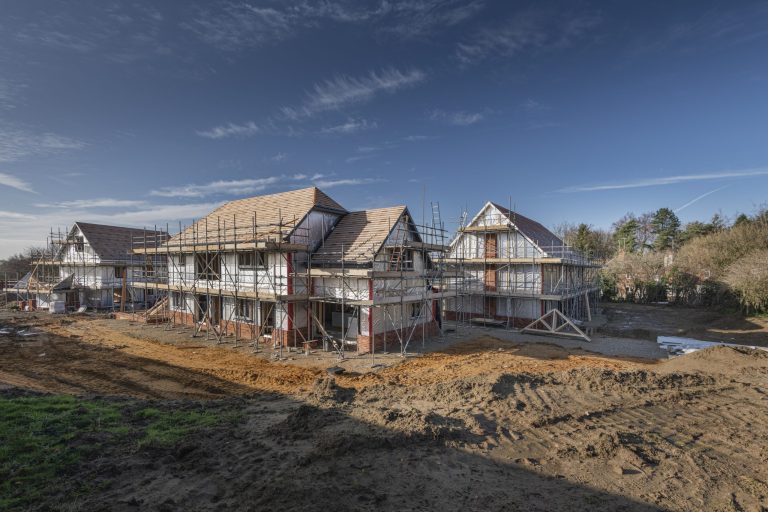The parliamentary Suburban Taskforce has today unveiled an Update Report summarising its workstreams and emerging considerations since it formed in March 2020. This includes key feedback from its public “Call for Evidence” and initial data analysis. The cross-party Taskforce was established, with the backing of the Government, to shine a light on the suburbs in order to identify and secure the clear, long-term and properly resourced policies needed to support thriving, sustainable and inclusive suburban areas. The Taskforce has spent the past twelve months reviewing evidence on the state of Britain’s suburbs in order to make recommendations to the Government on policy initiatives to enhance them. It is co-chaired by Dr Rupa Huq MP and David Simmonds MP, assisted by UCL as Knowledge Partner and with an expert Advisory Board chaired by leading British urbanist Jonathan Manns, Executive Director at Rockwell. The Taskforce has collated and reviewed quantitative data, such as those related to land use, built form, population, transport and infrastructure. It also held a public “Call for Evidence” which ran from August to October 2020 in addition to hosting a range of workshops and meetings with Government Ministers. The emerging analysis suggests that suburban areas can be seen as distinct from urban or rural locations but cautions against a one-size-fits-all approach and indicates that it may be more appropriate to understand them against a spectrum of characteristics. It also highlights the continued relevance of long-established ‘suburban debates’ about their relationship to urban centres and management of growth pressures, in addition to the potentially transformative impacts of the Covid-19 pandemic. Commenting on the recent update, Dr Rupa Huq MP stated: “Almost exactly to the day, a year ago a bunch of MPs from three parties met to start the ball rolling with the Suburban Taskforce. Since then, suburban society has changed in ways unimaginable at the time with working from home for white collar staff, a new appreciation of space, and lockdown all subsequently normalised. “As this interim report shows densification, sustainability, decline of pubs, all bracketed under need for renaissance and anticipation of the new normal were all identified. This provides a solid basis for the next phase of this groundbreaking work to build on… and I personally can’t wait.” Jonathan Manns, Executive Director at Rockwell and Chair of the Suburban Taskforce’s Advisory Board added:“England’s suburbs are long-overlooked and the potentially transformative impacts of Covid-19 on the way we live and work make this cross-party review yet more pressing and relevant. There has been strong engagement to-date, supported by fresh new data, which is shining a light on the importance of managing change in a way that is both contextual and popular. The next steps will be to focus on the implications of the evidence-gathering stage for policy-makers and decision-takers.” www.suburban-taskforce.org About the Suburban Taskforce The Suburban Taskforce is an independent inquiry into the state of the suburbs and charting a course “Towards a Suburban Renaissance”. It is a cross-party parliamentary taskforce, comprising representatives of both Houses of Parliament, from all political backgrounds. It seeksto set out an agreed agenda for change. Its goals are: To illuminate the nature of social and economic activity in the suburbs. This is to include patterns of work, life and play and associated conditions in terms of investment, expenditure, built and natural environment. To illustrate the potential differences between suburban areas and those which are either more central or more rural, in addition to wider spatial distinctions which may exist, for example between larger and smaller settlements. In doing so, to inform our understanding of what constitutes a “suburb” in 21st Century Britain. To identify policy mechanisms and interventions which may assist in supporting the long-term sustainability of suburban areas. This will have particular regard to supporting polycentric centres, not least through fiscal considerations such as taxation and investment and the management of change through the planning system. The Taskforce currently comprises the following members: Co-Chairs: Rupa Huq MP (Labour) and David Simmonds MP (Conservative) Vice-Chairs: Jon Cruddas MP (Labour) and Gareth Bacon MP (Conservative) Lords Liaison: Baroness Susan Kramer (Liberal Democrat) Current Members Karen Buck MP Seema Malhotra MP James Murray MP Bell Ribeiro-Addy MP Steve Reed MP Sam Tarry MP About the All-Party Parliamentary Group (APPG) for London’s Planning and Built Environment The All-Party Parliamentary Group (APPG) for London’s Planning and Built Environment will act as the Secretariat to the Suburban Taskforce. It was inaugurated in October 2015 to provide a cross-party forum for consideration of planning and development matters in London. It has been Chaired since inception by Dr Rupa Huq, MP for Ealing Central and Acton. It was convened by Jonathan Manns, Executive Director at real-estate developer Rockwell and widely recognised as one of the country’s leading urbanists, as an important step in helping develop a coherent political voice on key issues affecting the future shape of London. About UCL UCL is the number one London university for Research Strength, recognised for its academic excellence and global impact. The Bartlett School of Planning is one of the leading research-led planning schools within Europe. As Knowledge Partner to the Suburban Taskforce, UCL’s support will be coordinated by Dr Lucy Natarajan and assisted by Dr Dimitrios Panayotopoulos-Tsiros. About the Advisory Board An independent Advisory Board has been assembled to assist the Suburban Taskforce in its work. The Advisory Board is Chaired by Jonathan Manns; Board Director at Rockwell, Visiting Associate Professor at UCL and Convenor of the APPG. Representatives from both professional built environment organisations and civil society include: Richard Blyth, Royal Town Planning Institute; Nicholas Falk, URBED Trust; Katie Perrior, InHouse Communications; Will Tanner, Onward; Tony Mulhall, Royal Institute of Chartered Surveyors; Peter Murray, New London Architecture; Phineas Harper, Director of Open City, and Prof. Laura Vaughan, Professor of Urban Form and Society and the Director of the Space Syntax Laboratory at the Bartlett School of Architecture, UCL.














